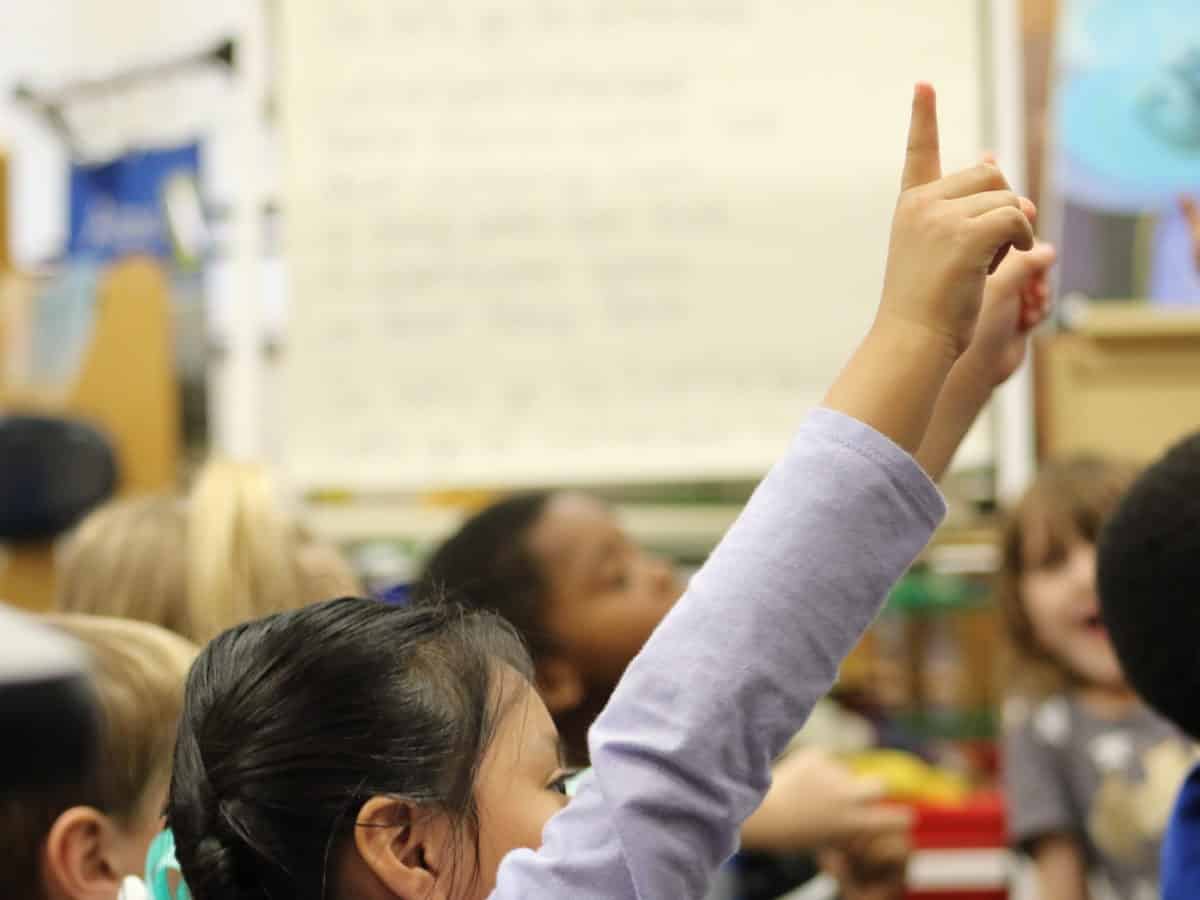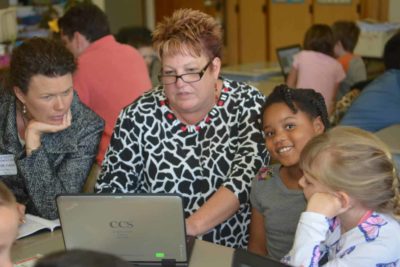

“The more desperately the press chases readers, the more it resembles our politics.”
I read that line for the first time just over a year ago when The New Yorker published an article entitled, “Hard News: The State of Journalism.” As we head into 2020, it keeps me up at night.
Four months later in April 2019, I found myself at a convening hosted by the American Press Institute, who is helping “transform news organizations for an ‘audience-first’ future.”
“Are you bringing people together,” I was asked, “or pushing people apart?”
The challenge and opportunity of our work at EducationNC is to be audience-first in schools and communities across a state with 100 very different counties.
We’ve got 23 counties that voted 70+ percent for President Trump, our urban blue crescent from Raleigh through the Triad to Charlotte, and all of the very purple counties in-between. And politics is just one line of difference. Add to it race and ethnicity, sexual orientation, rich and poor, old and young, urban and rural, Tar Heels and not-from-heres.
It requires a nuance and complexity that makes people uncomfortable because it cuts against the much more comfortable path of information acquisition — confirmation bias — where people seek and consume information that confirms what they want to believe.
In September 2019, Darren Walker, the president of the Ford Foundation, published an essay, “In defense of nuance.”
“Nuance and complexity,” Walker notes, “are nowhere to be found.”
“Our ability to solve our collective problems,” he continues, “is called into question.”
Walker reminds us of the importance of building bridges and strong, working relationships based on mutual understanding.
It is in nuance and complexity that Walker says we will find hope. “Hope that we can reclaim the commons and the common ground; hope that we can join in common cause for common good; hope that we can extend our hands, and our good faith, and, occasionally, even the benefit of the doubt.”
When thinking about the challenge of being audience-first in all of our 100 counties, as part of the Media Transformation Challenge at Harvard, EdNC’s Nation Hahn started by looking for a common denominator in our audience, but what he found was a common motivator instead. A common motivator that allows us to inform the public with news and research, tell the stories of our schools and our communities, and convene policyshapers and policymakers in all 100 counties.
Do you give a damn about education?
That common motivator — giving a damn — cuts through all our lines of difference and brings people together in our architecture of participation for our students and schools in the hope of building a better future.
That common motivator allows us — even in these polarized, politicized times and an election year that promises to be one for the ages — to take on the issues of governance and accountability, align the work of Leandro and myFutureNC to prompt systems change, and deliver on the sound, basic education our state constitution requires today and the 21st century education our economy requires tomorrow.
The issues faced by our students and our state are too big for one leader, one organization, or one political party.
At EdNC, we believe this — our students, our state, our future — is an all of us.
“A community is made up of shared moments, and local news is crucial for sharing these moments,” wrote Julie Sandorf with the Revson Foundation in the Stanford Social Innovation Review later in the winter of 2019. “If these moments are lost, we all lose … The fabric of our communities is something we all have to take responsibility for …”
On those nights I am wide awake, I remain ever thankful for the privilege and the responsibility of doing the work of EdNC.
There is much to be excited about in 2020. Recently, Emily Withrow, the director of R&D at Quartz, wrote an article entitled, “The year we kill the news article.”
“This year, we retire the news article as the default unit of journalism,” Withrow says. “This year, we’ll continue to see forward-thinking outlets discard the news article in favor of more dynamic formats that place the individual at the center of the story and news product … Our readers will feel like they’re a part of the process, not a part of the product.”
That is the audience-first approach you see at EdNC. An approach that includes all of you who give a damn about education across all of North Carolina.
For our students, for our state, for our future.
This week, stay tuned for more on our annual report and theory of change, our commitment to leadership development, what we’ve learned about being audience-first, and our new website.
In our annual report, you’ll see the results of a recent impact survey we conducted: 69% of the respondents said they discuss what they read on EdNC with their colleagues, 31% said they directly applied knowledge they gained on EdNC to their professional life or job, 24% share our articles on social media, 14% changed their mind about an issue because of something they read on EdNC, 11% comment on our articles, and 9% go on to discuss something they read on EdNC with a policymaker or legislator.
In 2020 and five years in, I count that as impact.
In 2020-21, EdNC will visit all 100 counties to gain a deeper understanding of the state we serve, analyzing demographics, mapping leadership, researching access to education and attainment, assessing information patterns and communications infrastructure. Expect great things from us.
Thank you.




